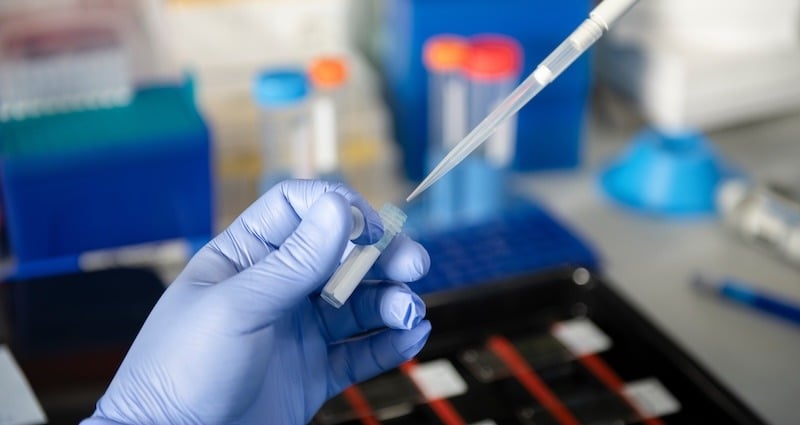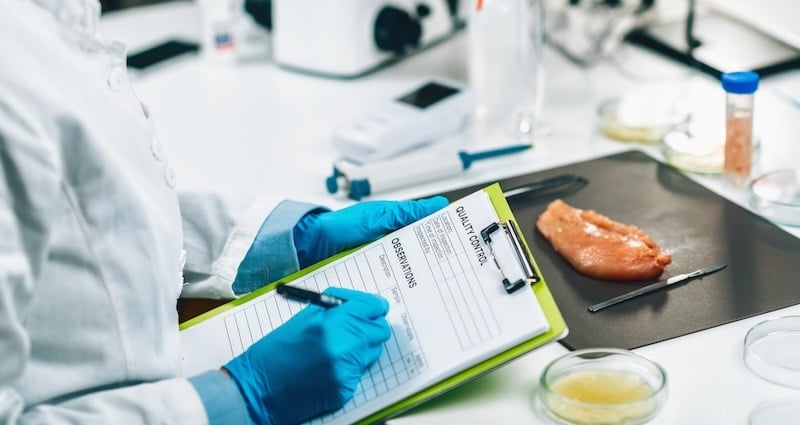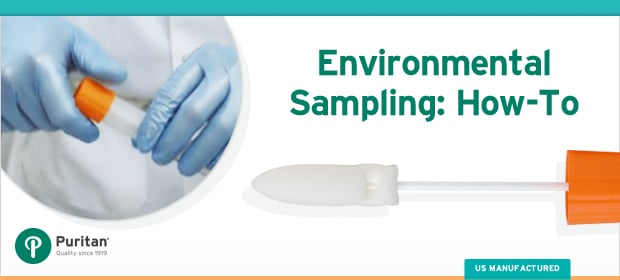
In this article, we share tips and best practices with you for collecting and testing food for bacterial pathogens.
While some people might not consider food safety to be an ongoing issue in the United States, data from the CDC says that foodborne maladies account for 3,000 deaths, 128,000 hospitalizations and 48 million illnesses in the US every year!
Food suppliers, producers and manufacturers must be especially stringent with food safety testing in the face of mandates like the FDA Food Safety Modernization Act. In addition to saving your business from potential lawsuits and punitive governmental action, accurately testing the food your facility produces can save lives.
According to the FDA’s site, The FDA Food Safety Modernization Act (FSMA) is transforming the nation’s food safety system by shifting the focus from responding to foodborne illness to preventing it. Congress enacted FSMA in response to dramatic changes in the global food system and in our understanding of foodborne illness and its consequences, including the realization that preventable foodborne illness is both a significant public health problem and a threat to the economic well-being of the food system
So what are the best practices for conducting environmental sampling of food products like meat, which may contain parasites or bacteria like salmonella and listeria, or E. coli?
How to Test for Pathogens in Food
Below we've outlined a step-by-step food safety sampling method for use with Puritan's EnviroMax Plus® Sterile Environmental Sampling Swabs.
Step 1: Preparation of the Food Sample
1. Put latex gloves on hands.
2. Open the bag containing the sterile 10cm X 10cm sampling template and place opened bag on a clean surface until ready for use.
3. Open and remove Puritan EnviroMax Plus® collection kit from its package at a horizontal angle to prevent contaminants from entering the vial.
4. Place Puritan EnviroMax Plus® collection kit on clean surface until ready for use.
Step 2: Food Pathogen Collection Procedure
5. Remove Puritan EnviroMax Plus® swab from vial by holding the cap and twisting counter-clockwise.
6. Remove the sampling template from its bag and place template over the desired location on the meat carcass that is to be sampled.
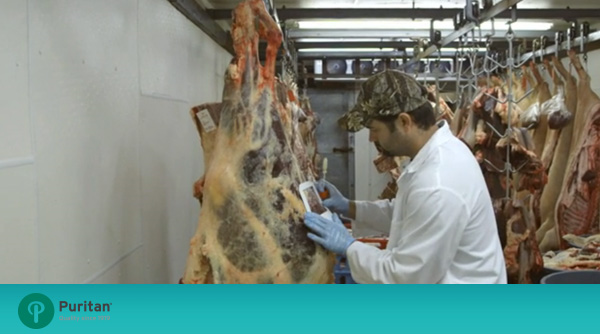
7. Collect the sample within the template by rubbing the swab in a downward motion with firm pressure approximately 10 times.
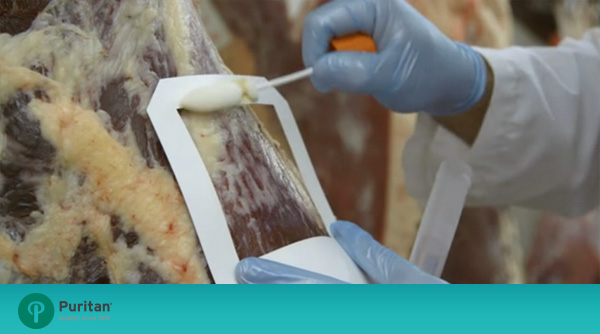
8. Turn swab to opposite side and collect the sample within the sampling template with firm pressure in a horizontal, side-to-side motion.

9. Aseptically return swab into vial by turning clockwise until tension is felt.

10. Remove and dispose of gloves properly.
11. Label vial with appropriate information.
Step 3: Laboratory Procedure
12. Deliver samples to laboratory for testing.
13. If immediate testing cannot be performed, refrigerate samples.
Hopefully now you’ll be better prepared to test for food safety at your facility. If you have any further questions, or you would like more information about our EnviroMax® Environmental Sampling Swabs, please contact us!
Looking for more? Download the Food Safety Facility Checklist today.


